32 things to know about American water spaniels
A popular pup in the US, here are 32 things to know about American water spaniels.
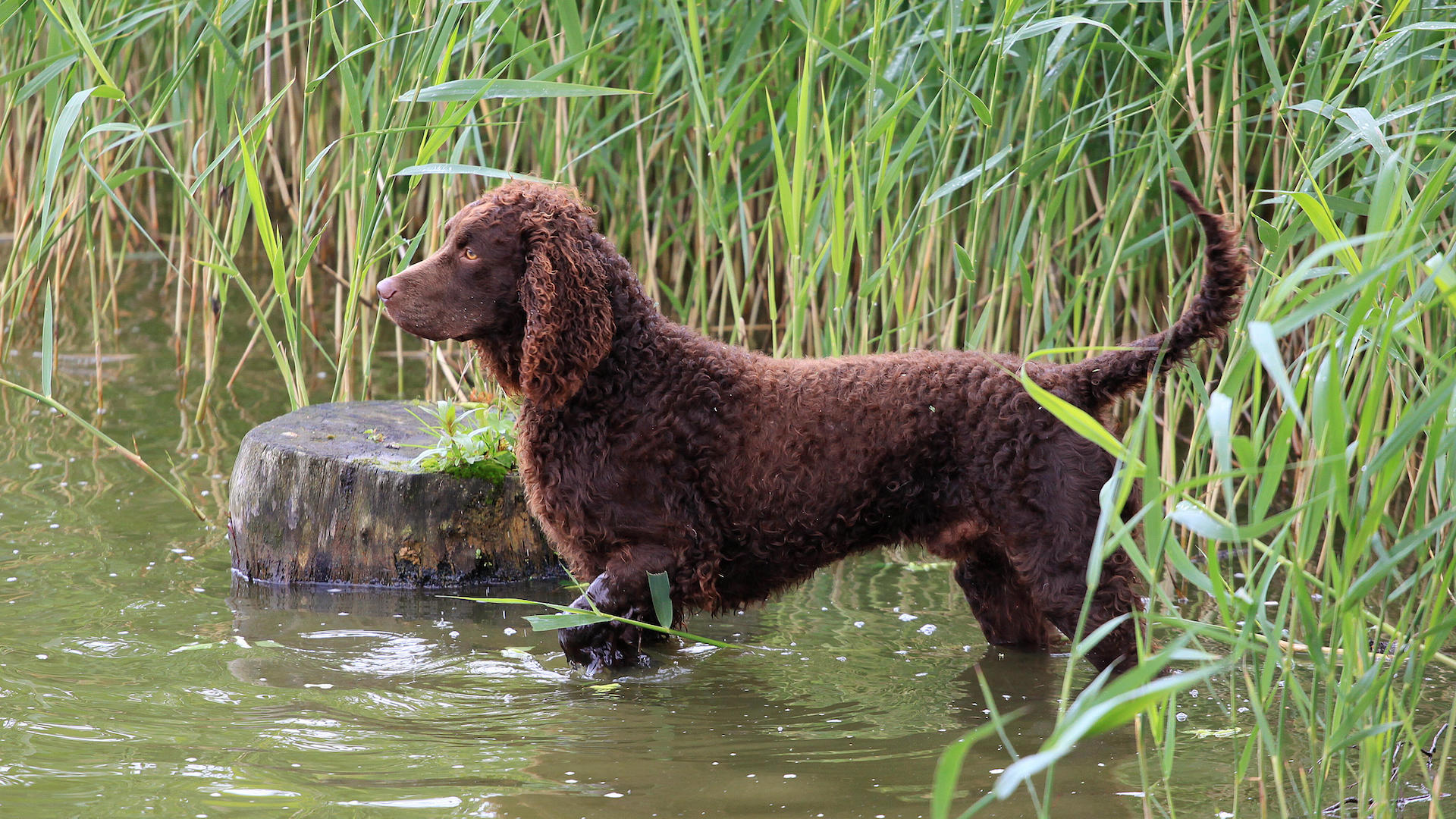
Half-retriever, half-spaniel, this versatile little gundog is the treasure of the mid-west US, where they originate. Despite being a super breed – with a sweet temperament, and impeccable dual talents in the field as both a retriever and a springer – this all-American dog has gained little traction outside its homeland.
Almost all of the tiny American water spaniel population live in the Great Lakes region where they were first developed. If the rest of the world knew what a fun, friendly, and energetic companion this chocolate-colored dog is, there would be a line for miles for this curly brown puppy.
Let’s find out more about this rare and versatile breed.
32 things to know about American water spaniels
1. A recognized breed since at least 1940
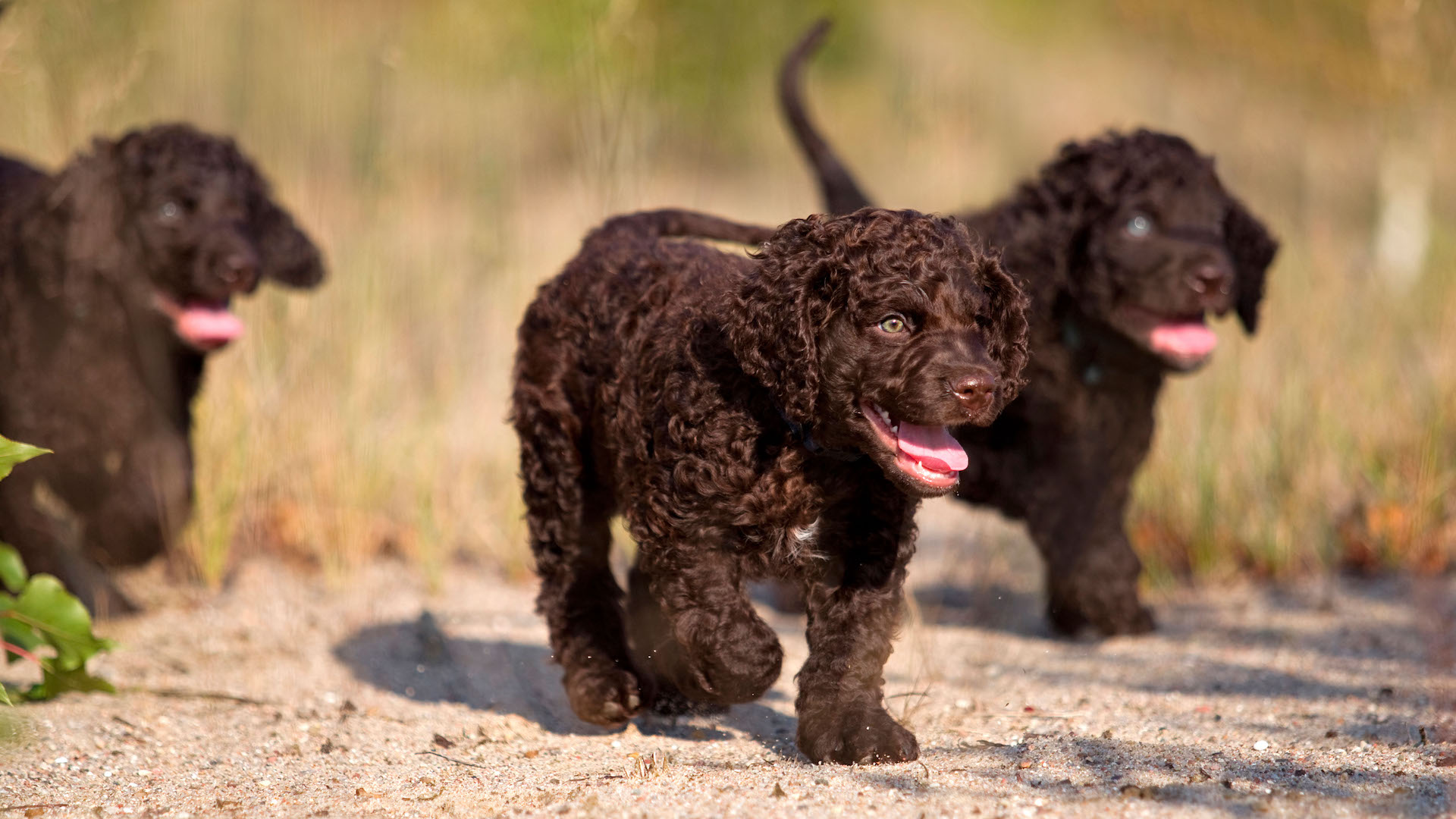
While the American water spaniel has its origins in the mid-19th century, it was only registered as an official breed with the American Kennel Club in 1940. However, the United Kennel Club recognized it 20 years earlier.
2. Shades of brown
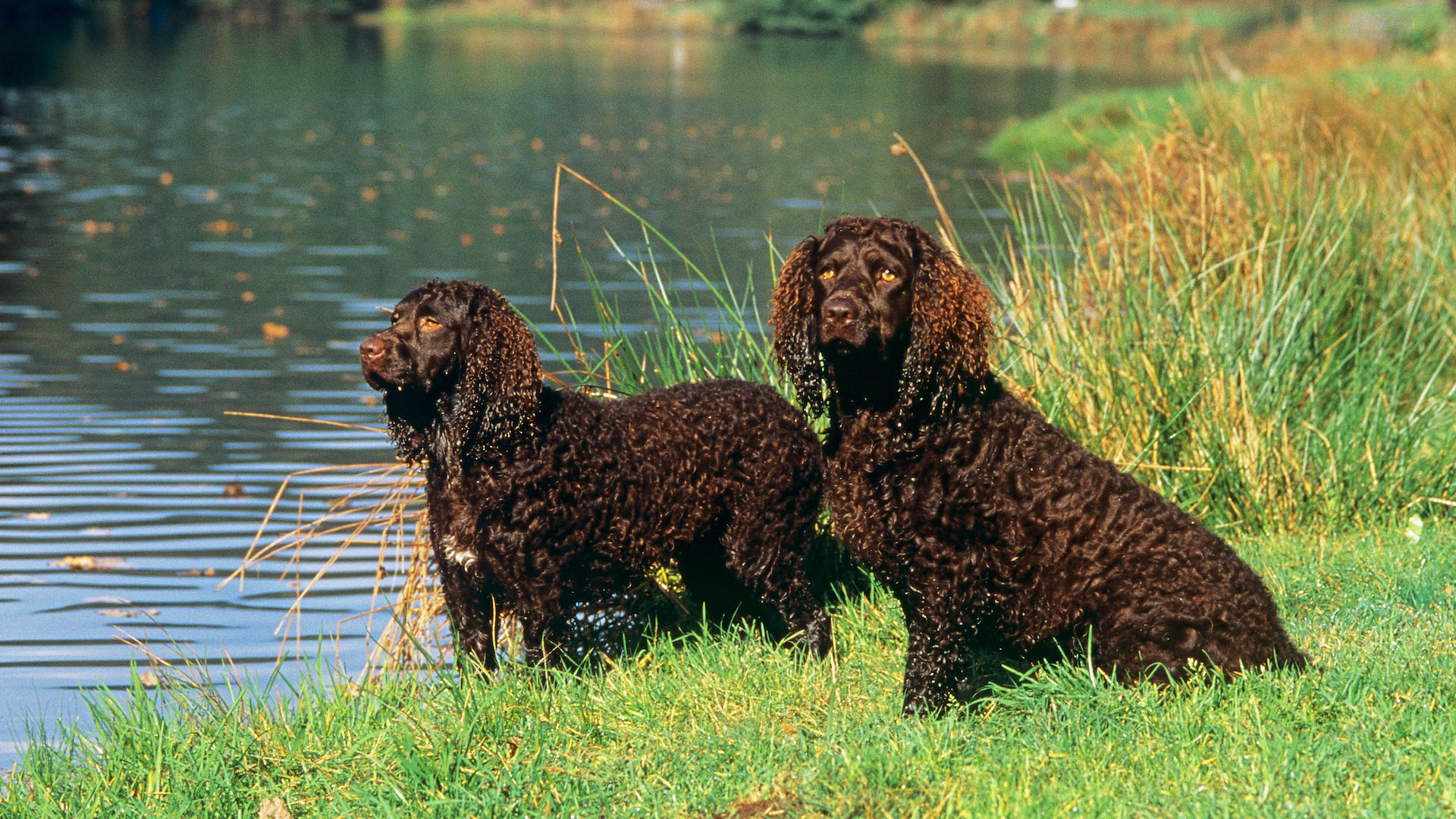
American water spaniels come in three different colors – all shades of brown. There is brown, chocolate, and liver. Warm, cozy, and comforting.
3. Luscious locks
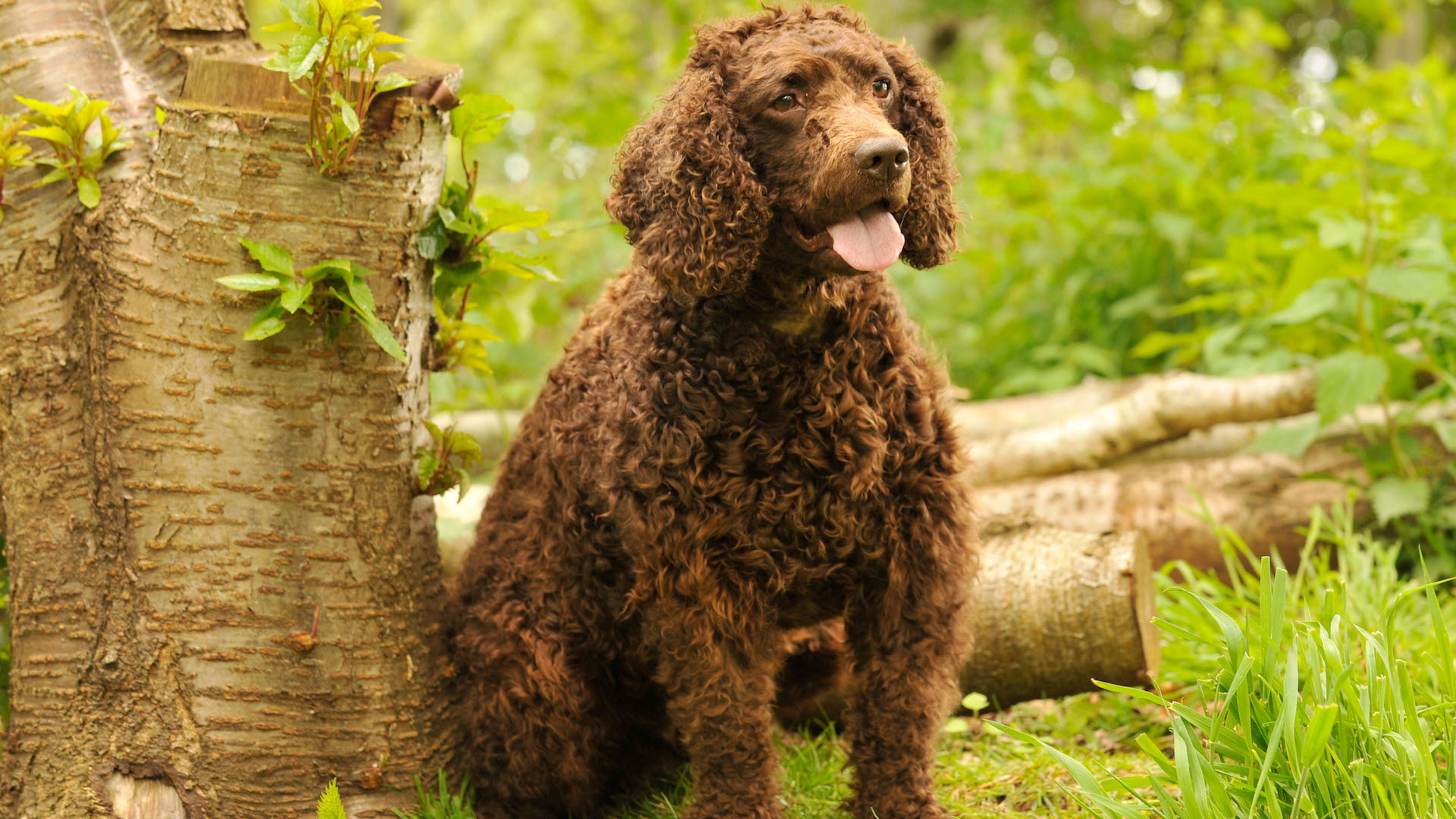
American water spaniels have coats that are either wavy or tightly curled. This protects them against the cold and repels water – besides looking adorable.
4. Waterproof coat

The AWS has a dense, waterproof, and curly coat. Being bred to work in icy waters, it needs these layers of insulation. The dense undercoat protects them from the cold, and keeps them warm, while the oily texture of the curls repels water and protects them as they forage around in undergrowth.
PetsRadar Newsletter
Get the best advice, tips and top tech for your beloved Pets
5. Duck feet
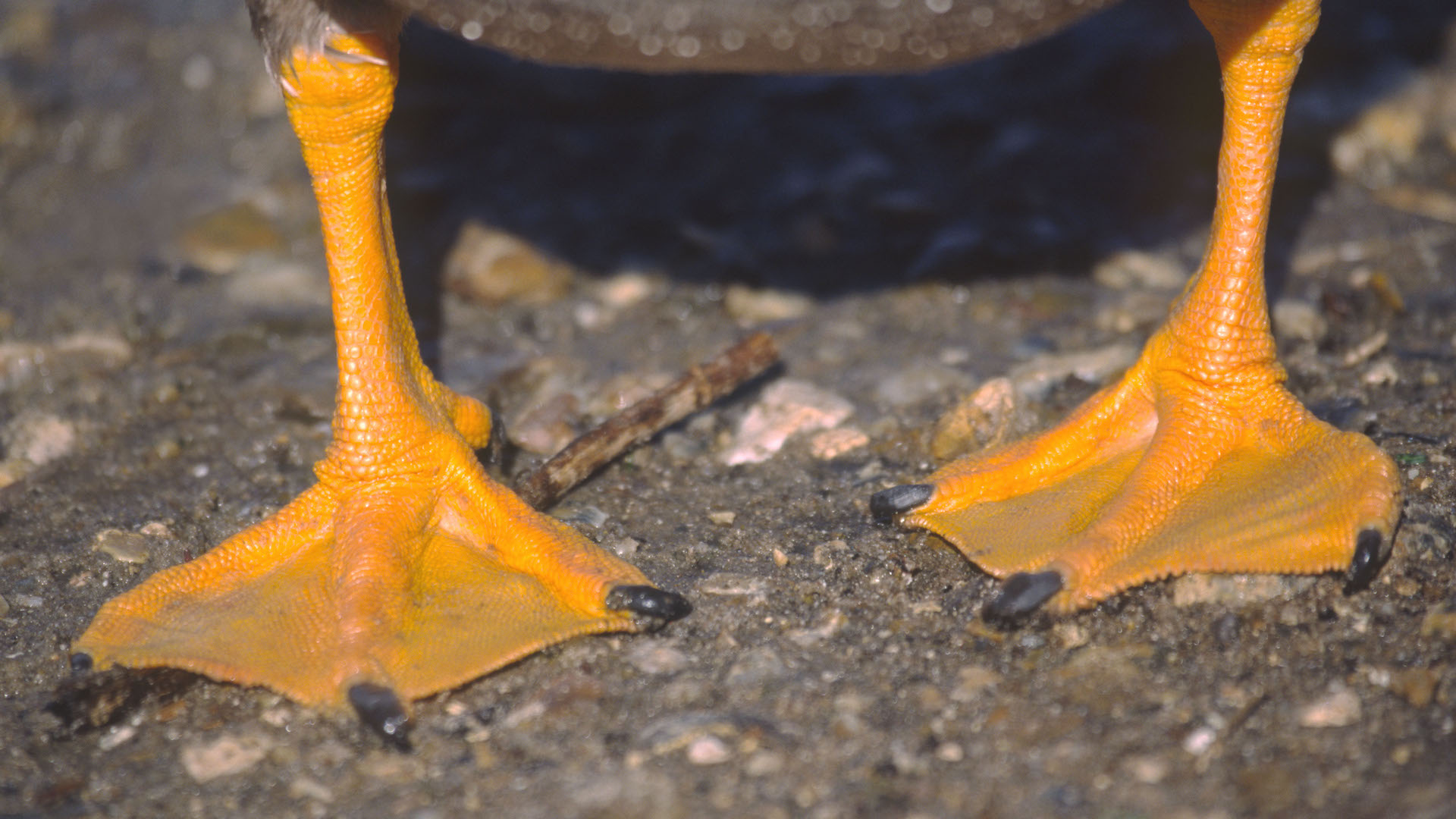
American water spaniels are definitley one of the dog breeds that are made for swimming. They have webbed toes, which make them extra-proficient swimmers on top of all their other natural attributes and aptitude for the water.
6. The state dog of Wisconsin

The breed originated in the mid-west and in 1986 was named the state dog of Wisconsin – where it originated. This could very well be the reason that Wisconsin is also one of the top US cities to have a dog. Only 13 states in the US have state dogs.
7. Boating origins

This was the first breed developed specifically to retrieve from boats, hence its exceptional swimming ability. They are the perfect size to be able to ride in the punts and skiffs and hop out to retrieve the fallen game. Smaller than many other gundogs at 25–45lb, they can then easily be lifted back into the boat when their job is done.
8. Super friendly

The American water spaniel is typically a wonderfully friendly breed, sweet and fluffy, good with children – and exceptionally playful. However, they can be wary of strangers, so need – like all dogs – to be well socialized.
9. Doggy dynamos
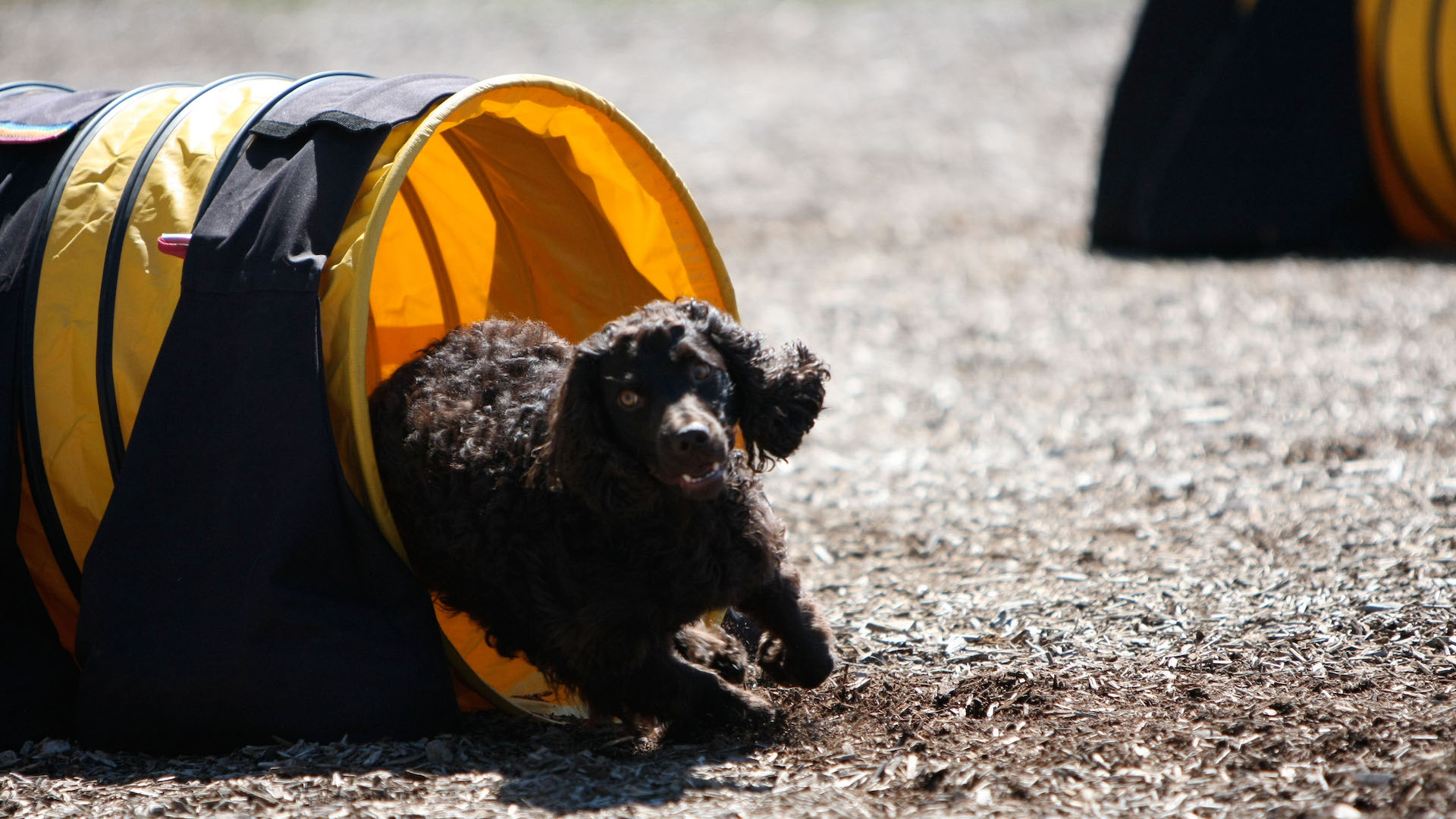
Bred to be work as a gundog, the American water spaniel tends to be exceptionally energetic. They can out-swim, out-run, and out-play anyone! They require at least two hours of daily exercise, making them a high energy dog breed that are perfect for active pet parents.
10. A rare breed
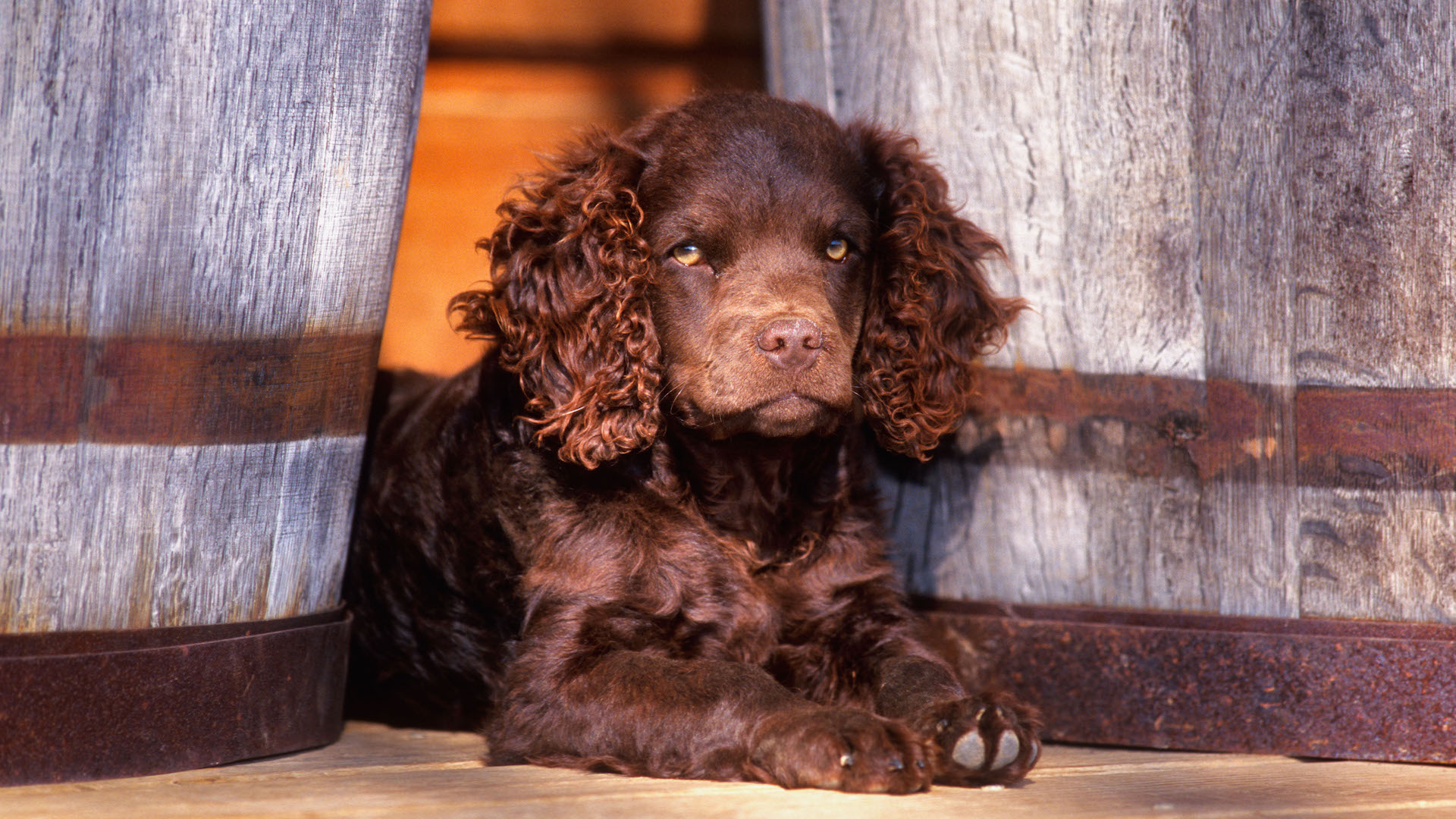
According to the American Water Spaniel Club, this is a rare breed with only 3,000 in existence, mainly in the US. It is extremely uncommon to find an American water spaniel in other countries. It is not, for instance, recognized as a breed by the UK Kennel Club.
This inevitably means that there are few breeders and therefore these adorable chocolate brown puppies are hard to come by.
11. Perfect proportions
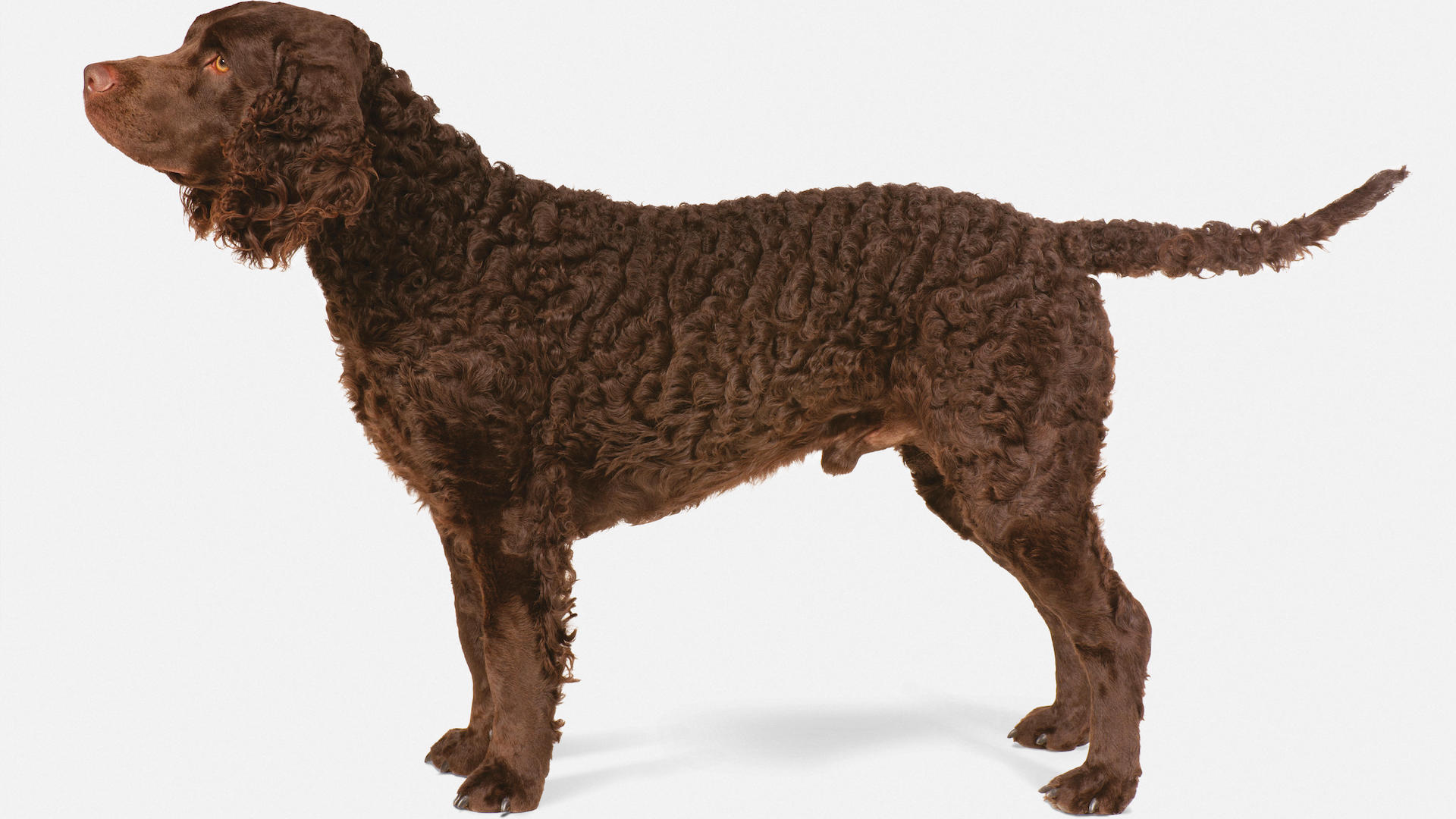
This is a neat working dog, with both females and males measuring 15–18in according to the breed standard. Correct proportions, substance and balance are a priority.
12. A touch of white
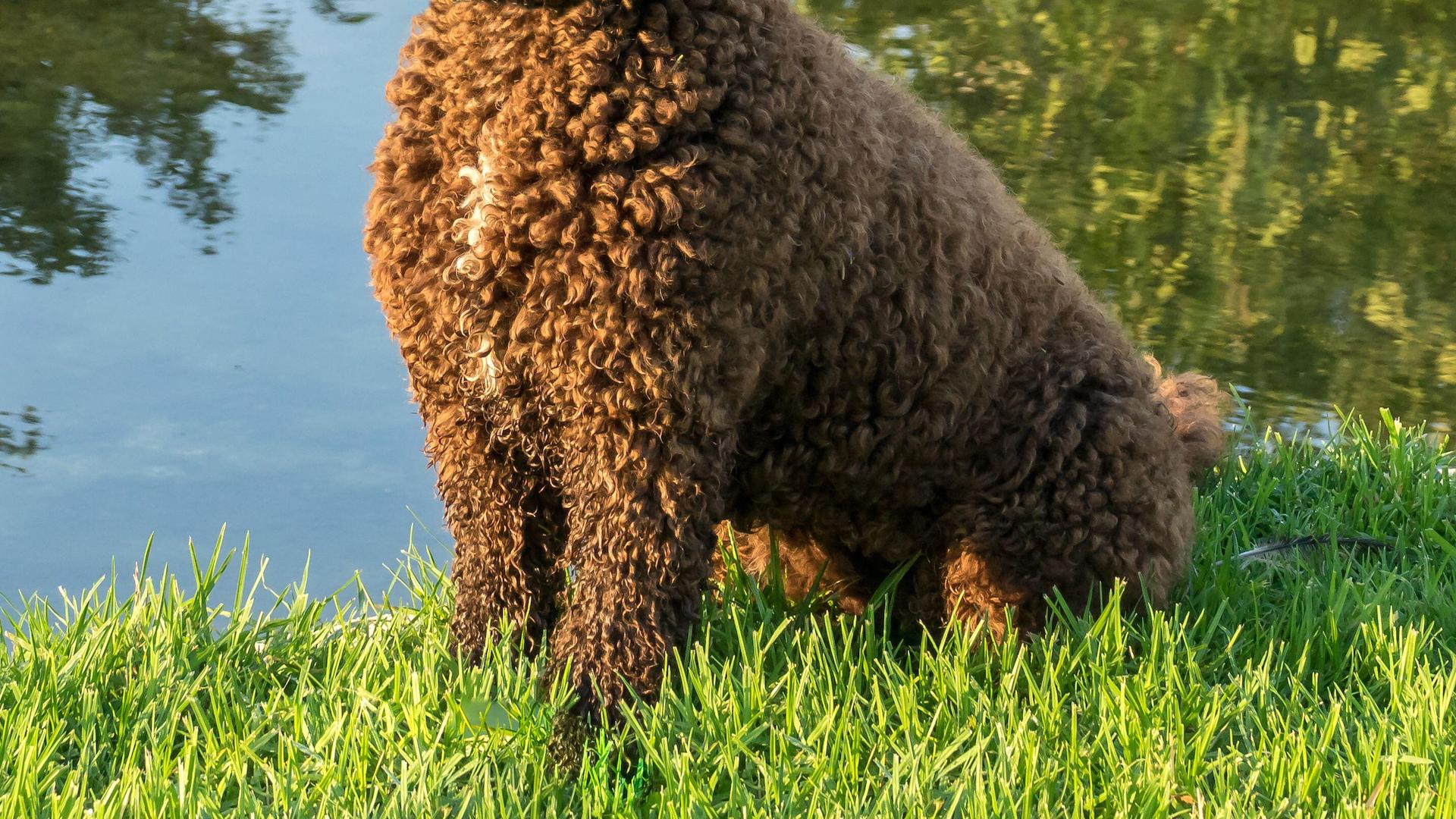
Although American water spaniels are known for their solid brown (or liver and chocolate) coats, a small amount of white is permitted on the toes and chest.
13. Jack of all trades
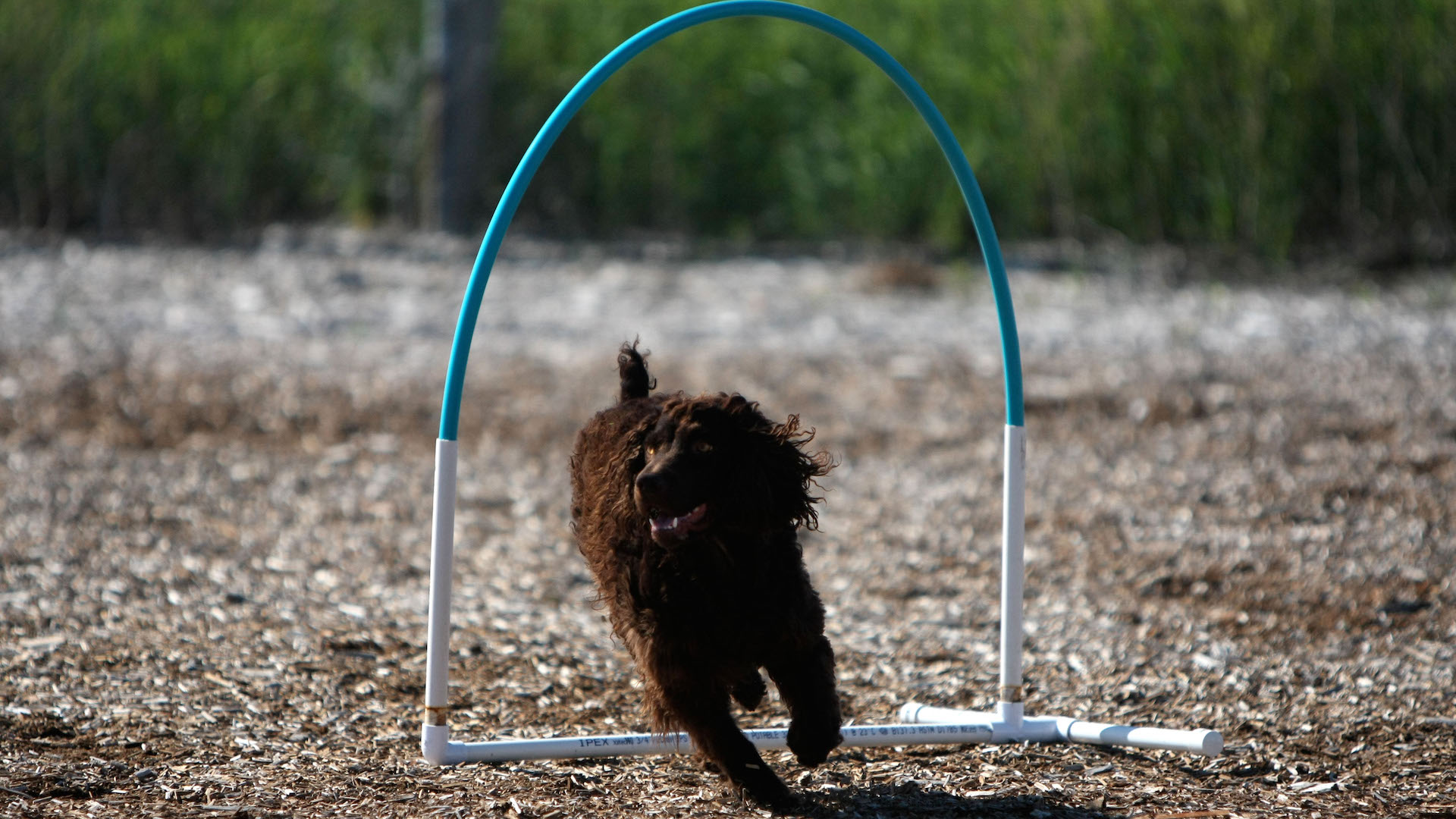
While the American water spaniel excels as a waterfowl retriever or upland flushing dog, for which it was bred, they can turn their paws to many a sport. This breed is also adept at agility, scent work, and even dock diving and skijoring!
Many of these activities can be done with their pet parents right along side them so if you were looking for ways to workout with your pet, choices are endless with this breed.
14. Lovers of the cold
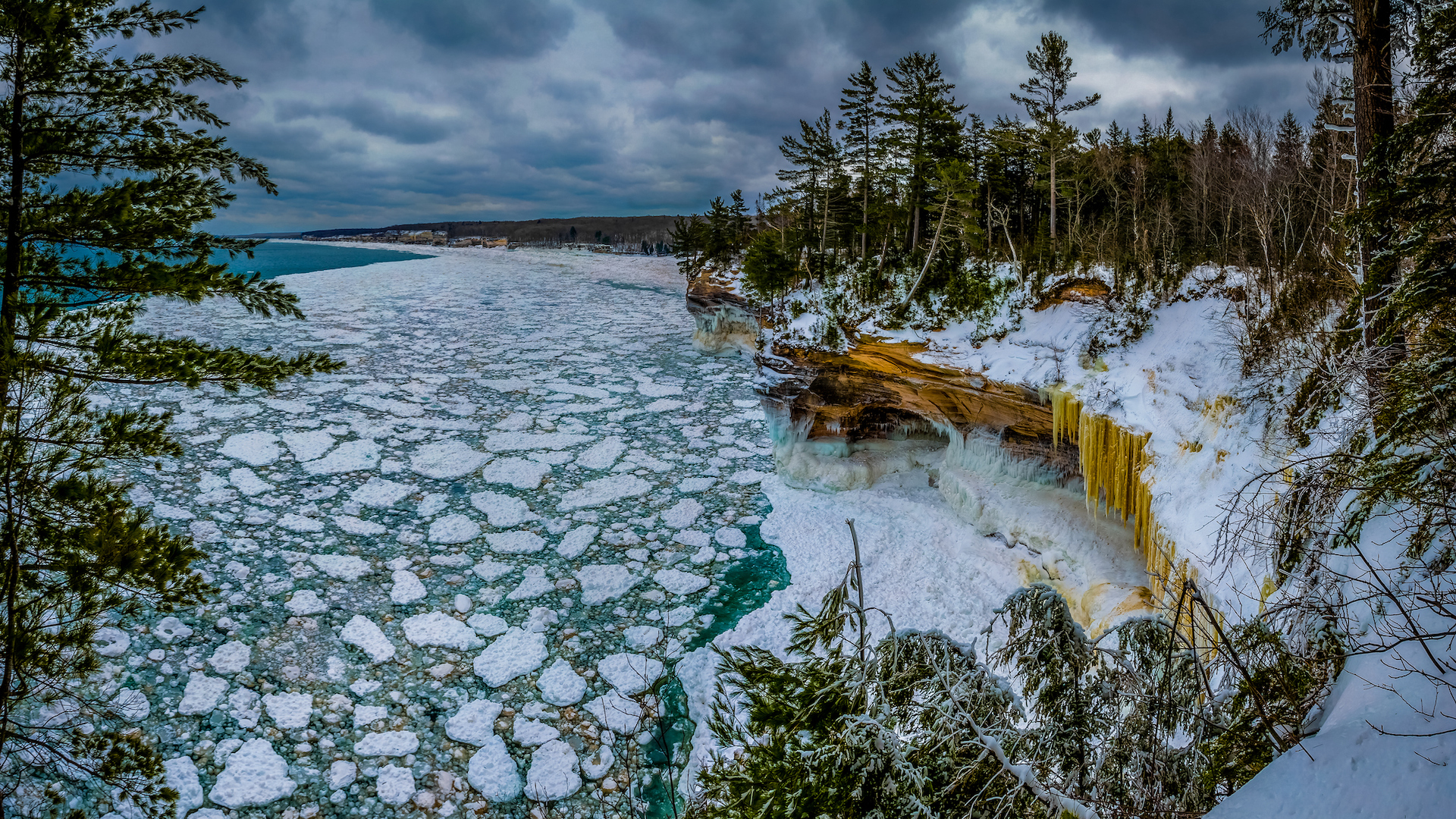
With their curly, thick, oily coat, and provenance in the icy waters of the Great Lakes region, American water spaniels are one of the best dog breeds for cold climates. However, as long as they’re not asked for too much exertion in hot weather, this is typically a fit and sporty dog who can cope when the temperatures rise.
15. The “Goldilocks” spaniel

Spaniels come in all shapes and sizes, and we’d argue that the AWS is the perfect model. While this breed is not known for the flashiness and speed of the English springer spaniel, nor is it slow and ponderous like the clumber or Sussex. The AWS is typically methodical, steady, and reliable – not too slow, not too fast, just right.
16. A select band – made in America
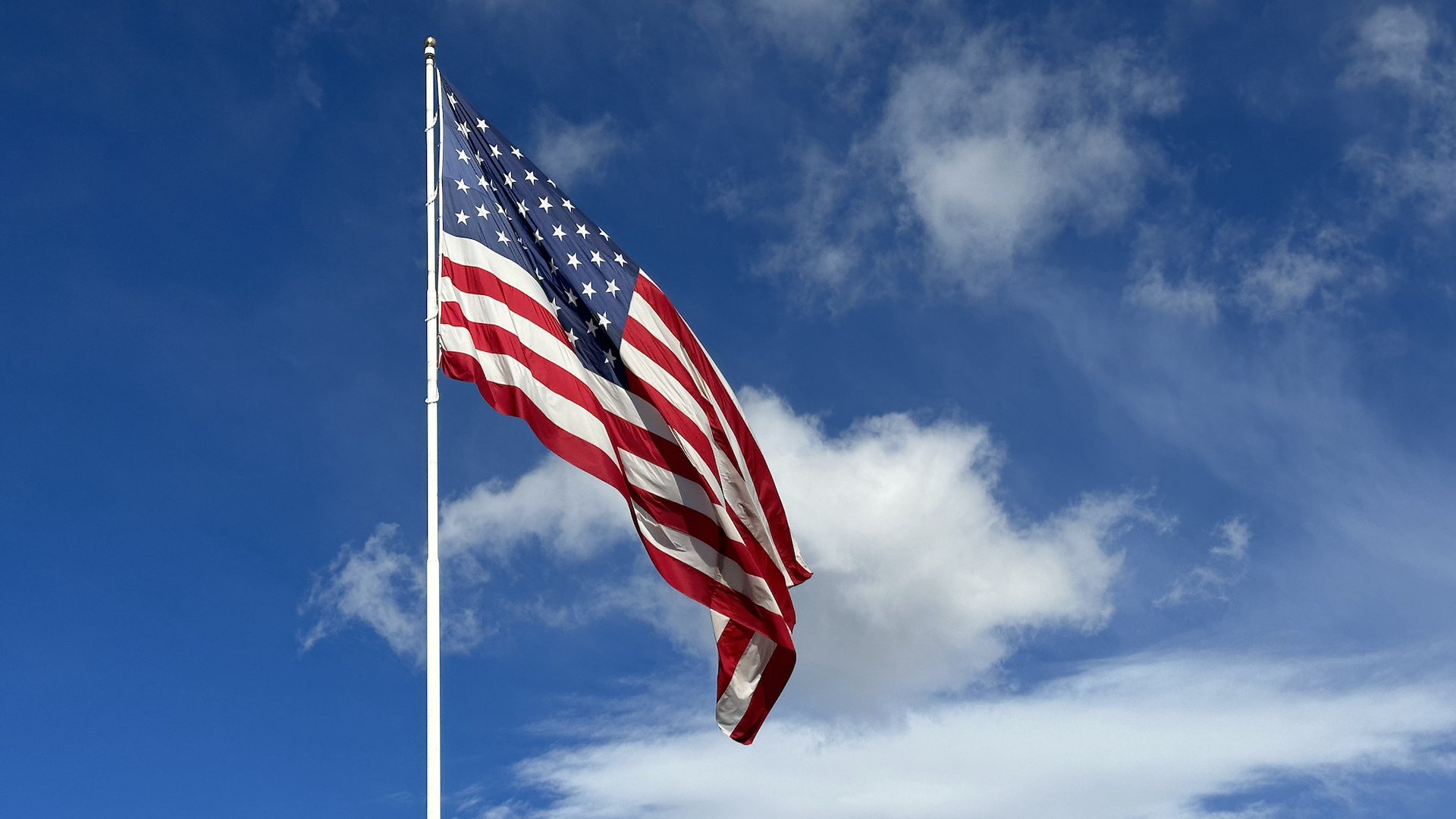
There are only a handful of hunting breeds that were developed in the US. These include the American cocker spaniel, the Chesapeake Bay retriever, the Boykin spaniel, and, of course, the American water spaniel.
17. Look into my eyes

While their eye color can be fairly pale, ranging from light brown to hazel, yellow is considered a fault.
18. A mixed heritage
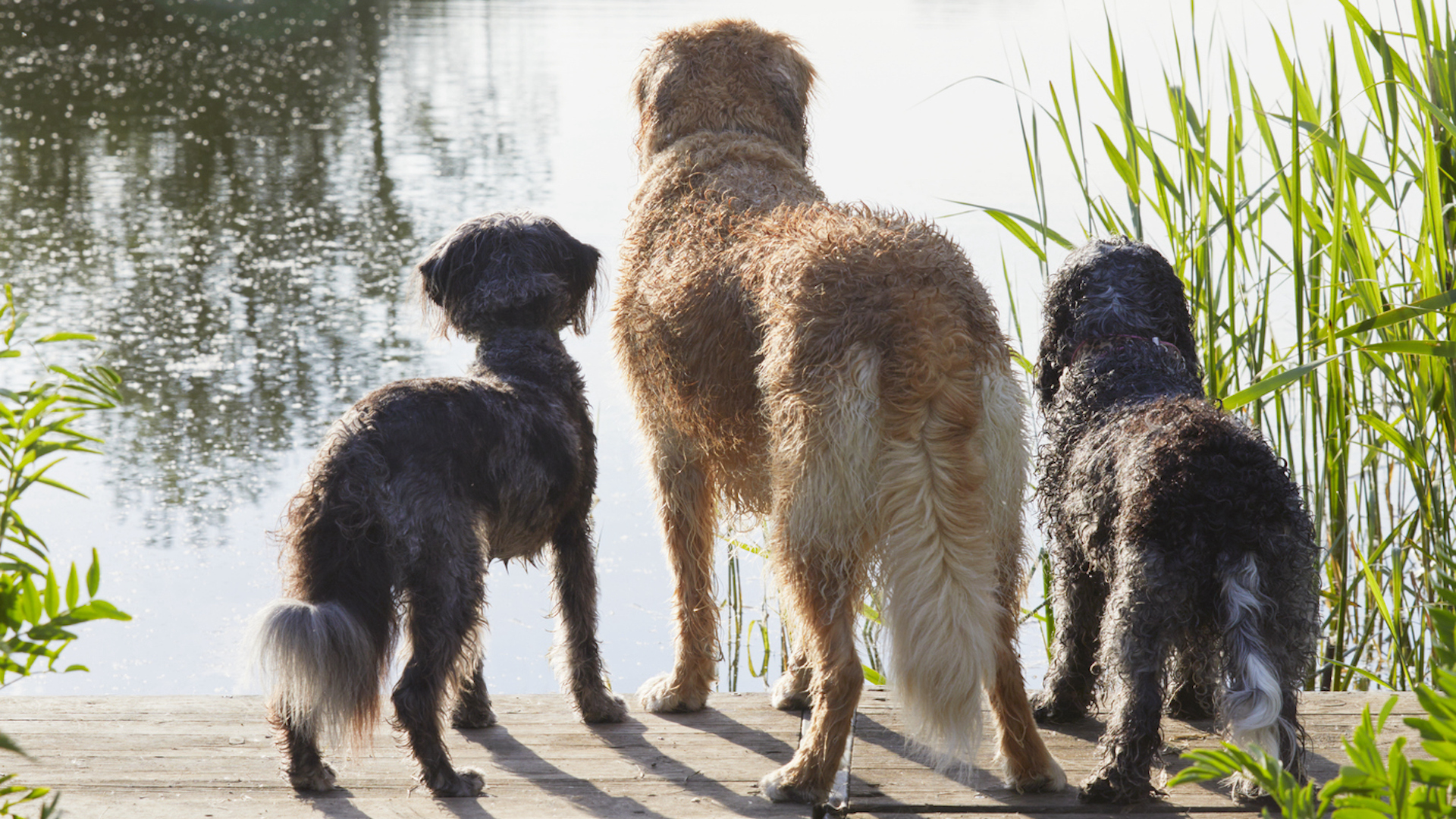
Called a spaniel, this breed is likely to feature both spaniel and retriever in its ancestry. It is believed to have been developed from the Irish water spaniel and curly-coated retriever, both of which it resembles. But many experts also point to the (now extinct) English water spaniel and field spaniel has being contributors.
19. Curly Pfeifer the pioneer

The first official American water spaniel was named Curly Pfeifer, after his breeder, Dr FJ Pfeifer, who was the first to register the breed – with the United Kennel Club in 1920.
20. An older breed than you might think...
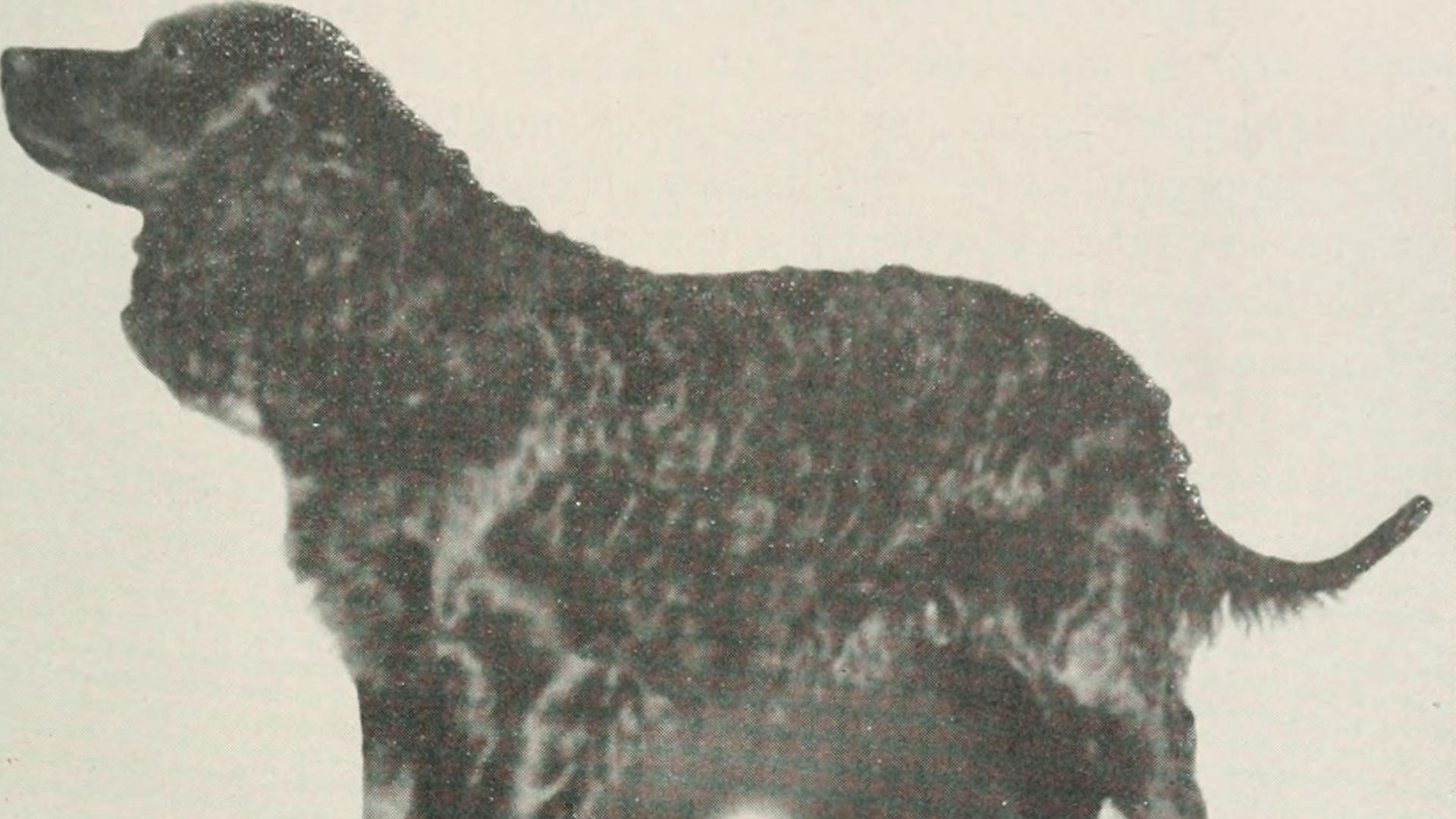
Although the American water spaniel has only been registered with the AKC since 1940, these sturdy little gundogs have been around since the mid-19th century – and have been refined ever since.
21. A springer, retriever and a swimmer

These hardworking gundogs are adept at retrieving downed waterfowl from the lakes and rivers, but they are also expert flushers, springing upland game birds such as grouse and pheasant.
22. Surviving extinction
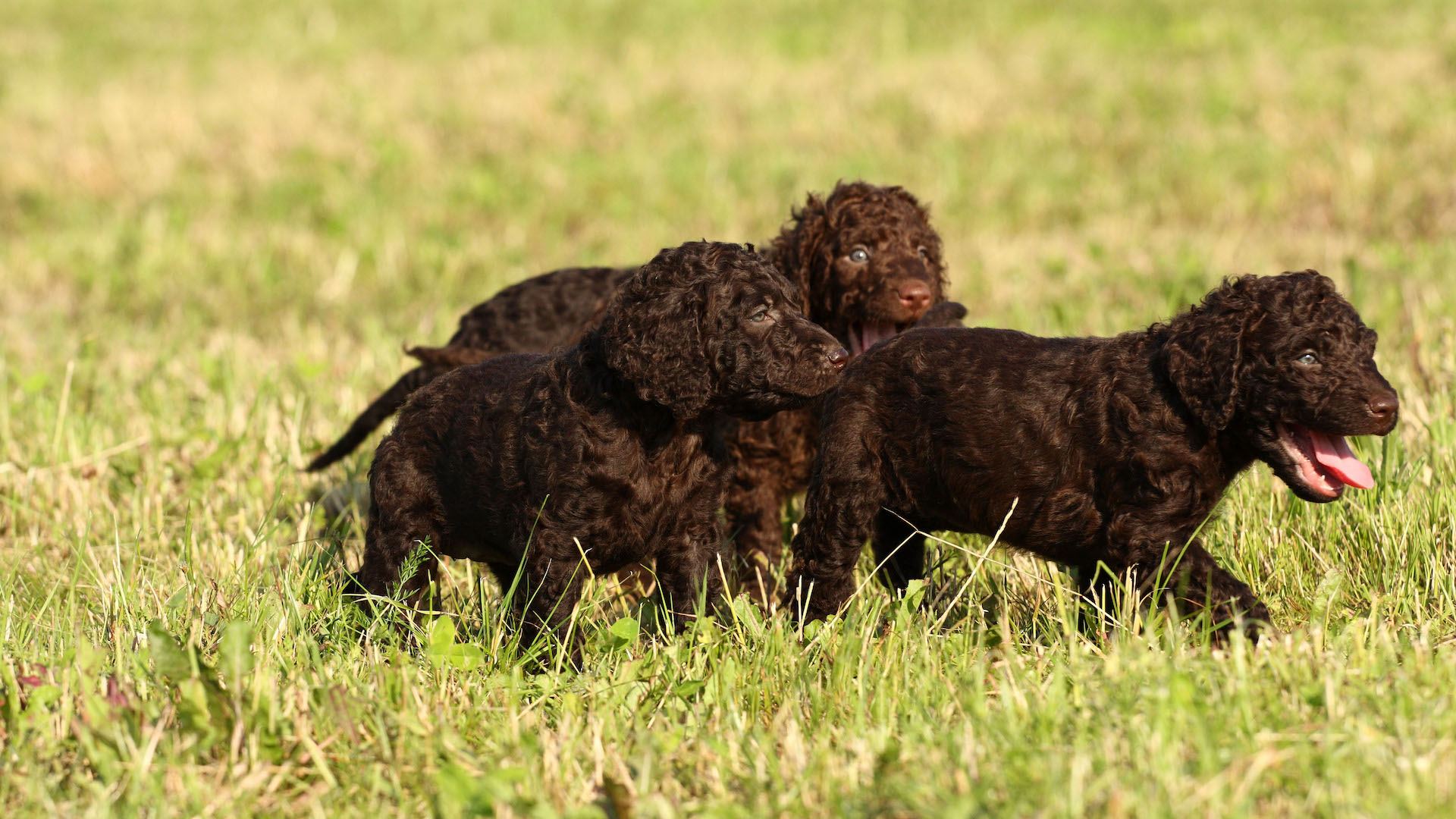
In the early 20th century numbers of the American water spaniel dwindled severely as hunting became less prevalent, and the larger British breeds increased in popularity across the Atlantic. It was a Wisconsinite called Dr JF Pfeifer who is credited with both saving and establishing the breed as we know it today.
23. “Brown” or “water”?

The breed was originally known as the American brown spaniel before it became officially recognized as the American water spaniel. The brown part definitely goes without saying – given that they only come in brown colors.
24. Identity crisis
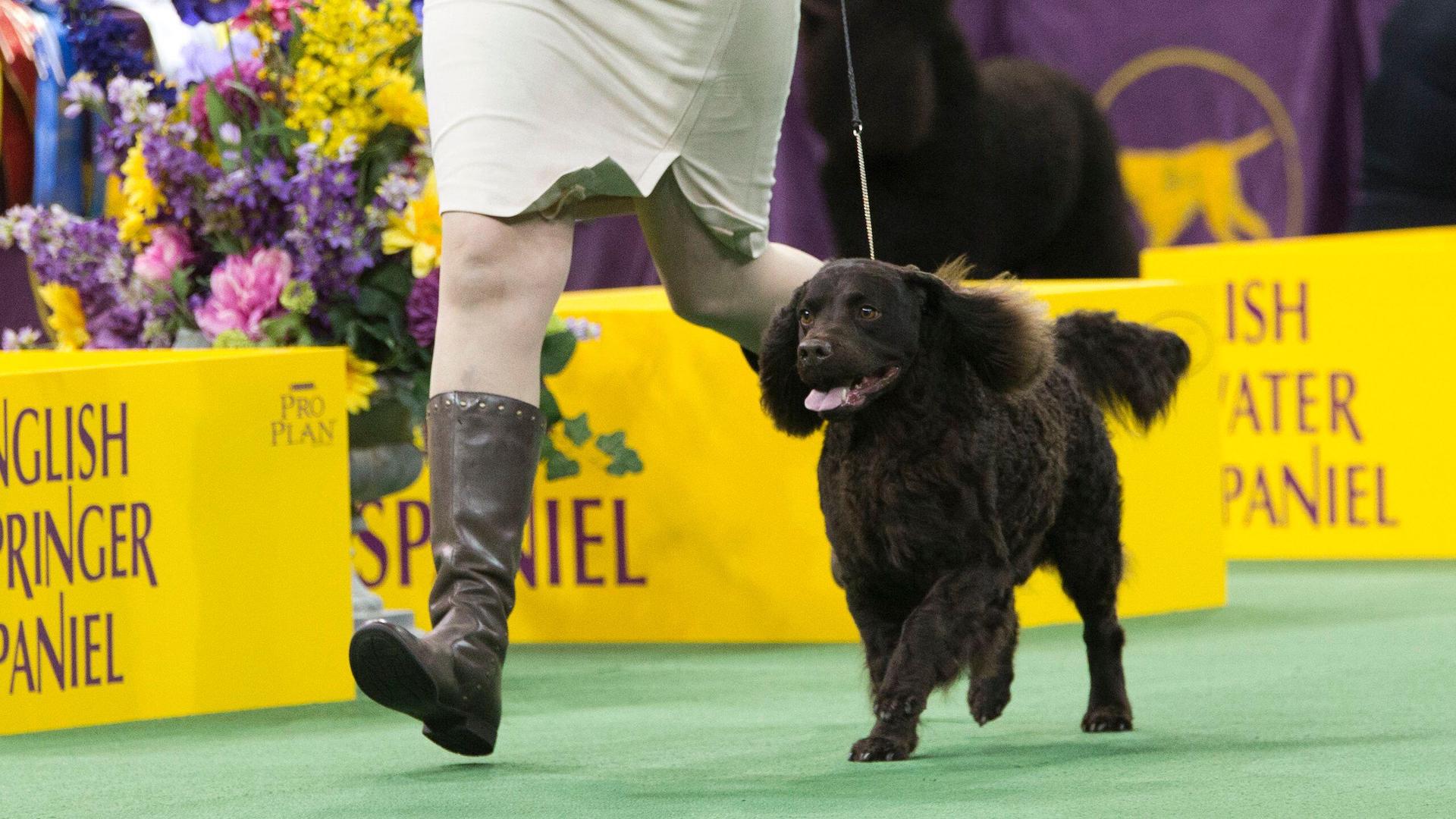
Although the breed has spaniel in its name, it has roots in both retrievers and spaniels and so the authorities struggled to decide which classification to put it in. For many years – from 1940–to 2005 – the AKC did not permit the AWS to participate in hunt tests because of this identity crisis. Happily, it has now resolved the conundrum so that AWSs can participate in field trials and hunting tests.
They also compete in showing classes.
25. Testing times
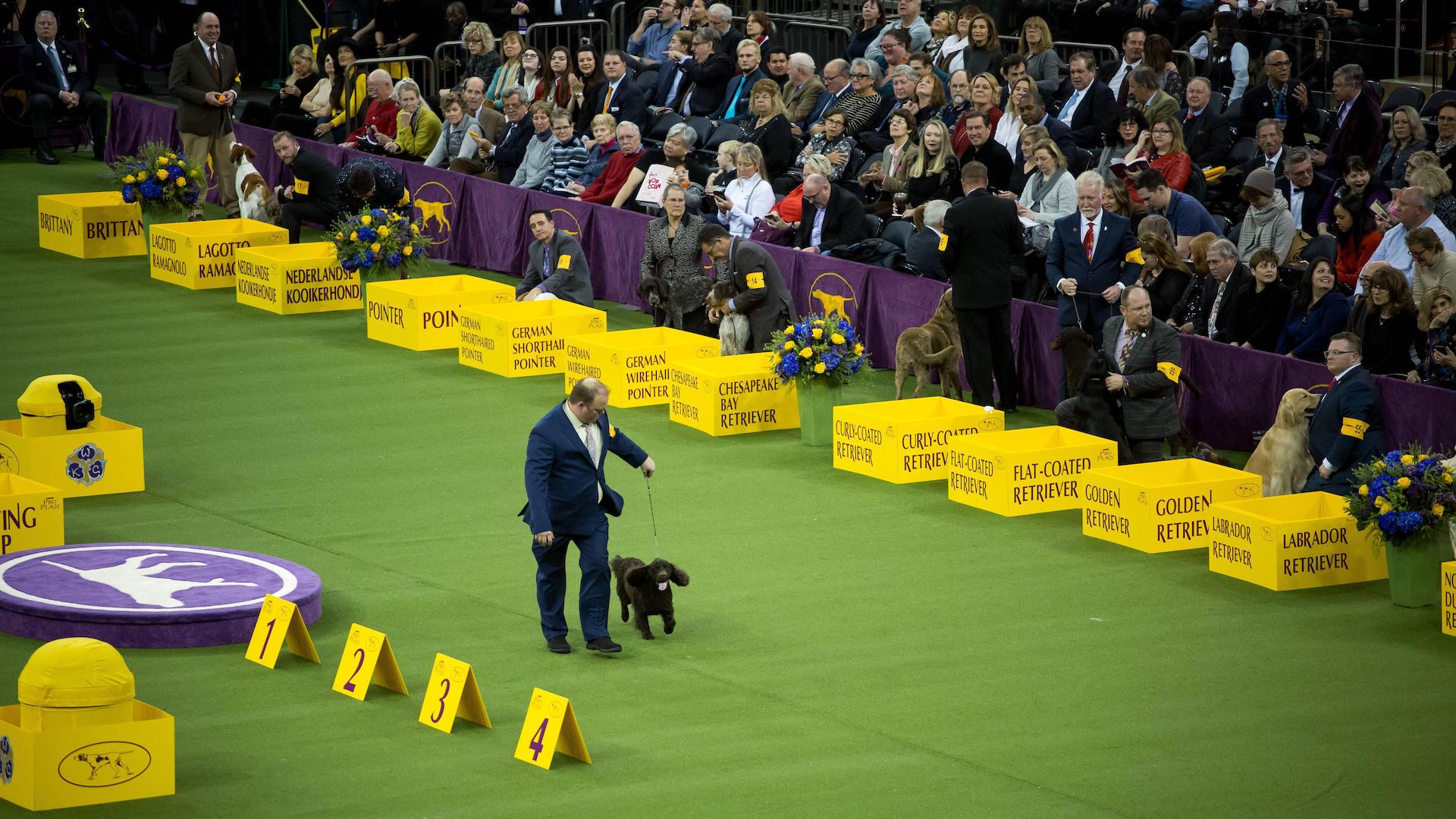
Since 2005, the AWS has been classified as a spaniel by the AKC, enabling it to participate in spaniel-huntinga tests. However, because it really is half-retriever, it also has to pass two “retrieving certification tests” (involving a 40–60yd water retrieve) to earn a hunting test title. This might seem a high demand, but it secures the future of the breed as having dual talents.
26. Both a worker and a friend
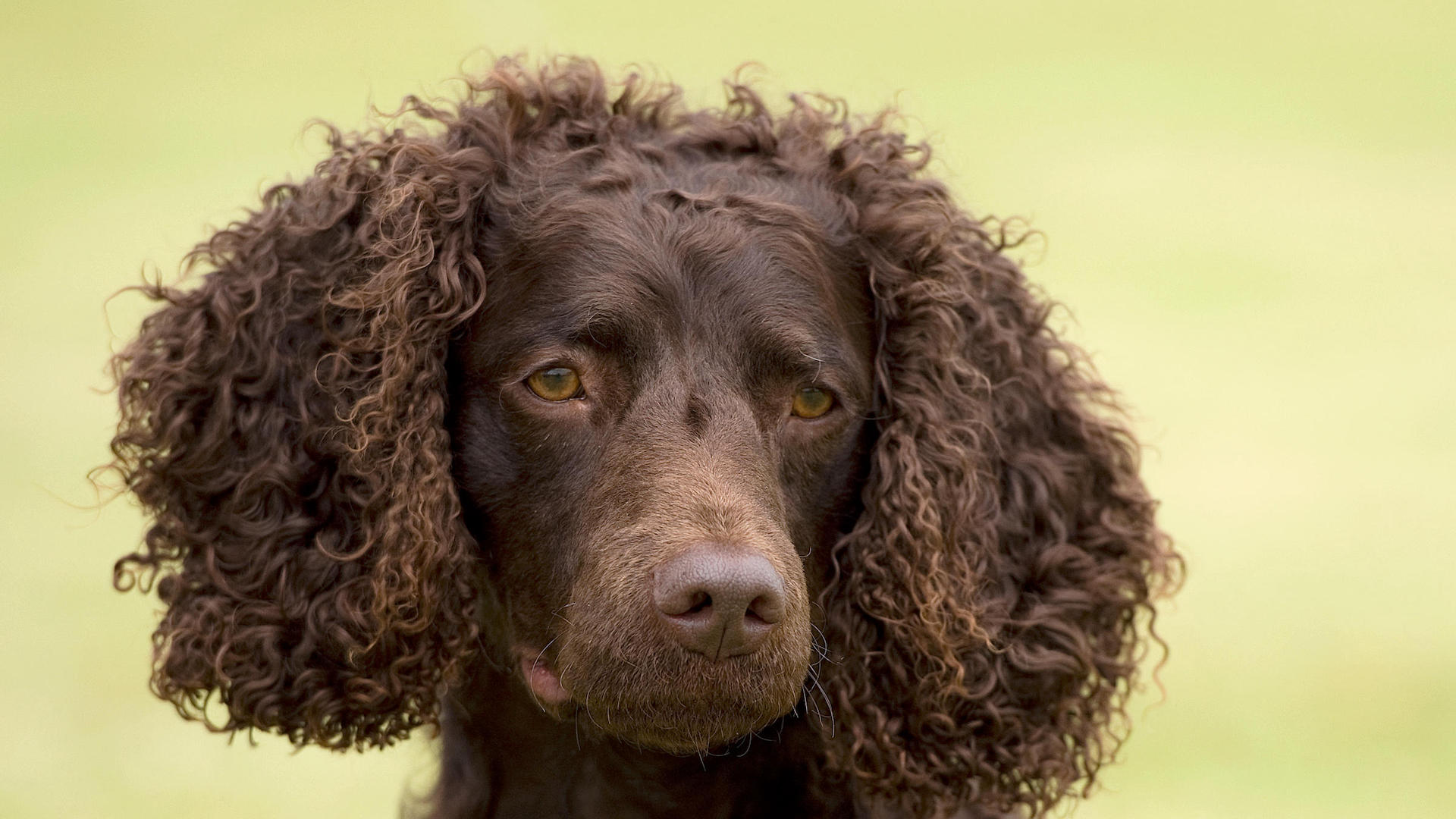
Although the AWS is undoubtedly a brilliant and reliable working gundog, they can make wonderful family pets as well if they are well socialized, attuned to their owners, and playful with children. Just make sure you’re ready to offer them plenty of exercise!
27. Swimming supremos
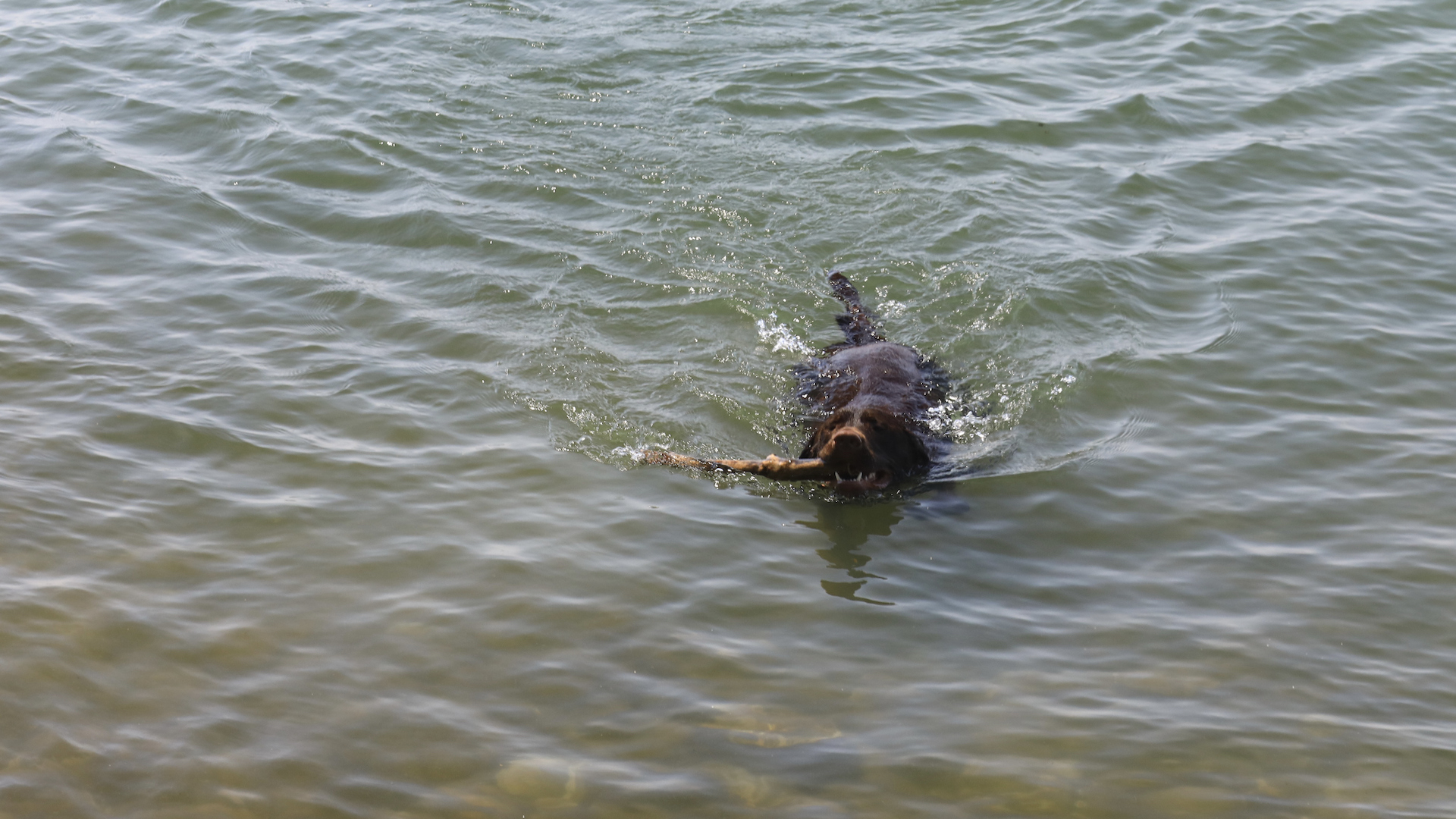
The clue is in the name... They might not dive into water with quite the gusto of a Labrador, but with their webbed feet, and their waterproof coat to protect them from cold as well as repel water, they are natural swimmers.
28. Smart learners

American water spaniels are known to be intelligent and trainable – and they love a job. They excel at many different sports, being a truly versatile and responsive breed. They engage well in training and are always up for a challenge.
29. They are not hypoallergenic

Some people mistake their curly coat for being like a poodle’s, but they aren’t one of the hypoallergenic dog breeds – though, in fact, no dog truly is. Their curly double coat needs grooming and does shed, but minimally so, they are a good choice for those who don’t like a lot of hair everywhere.
30. A good watchdog
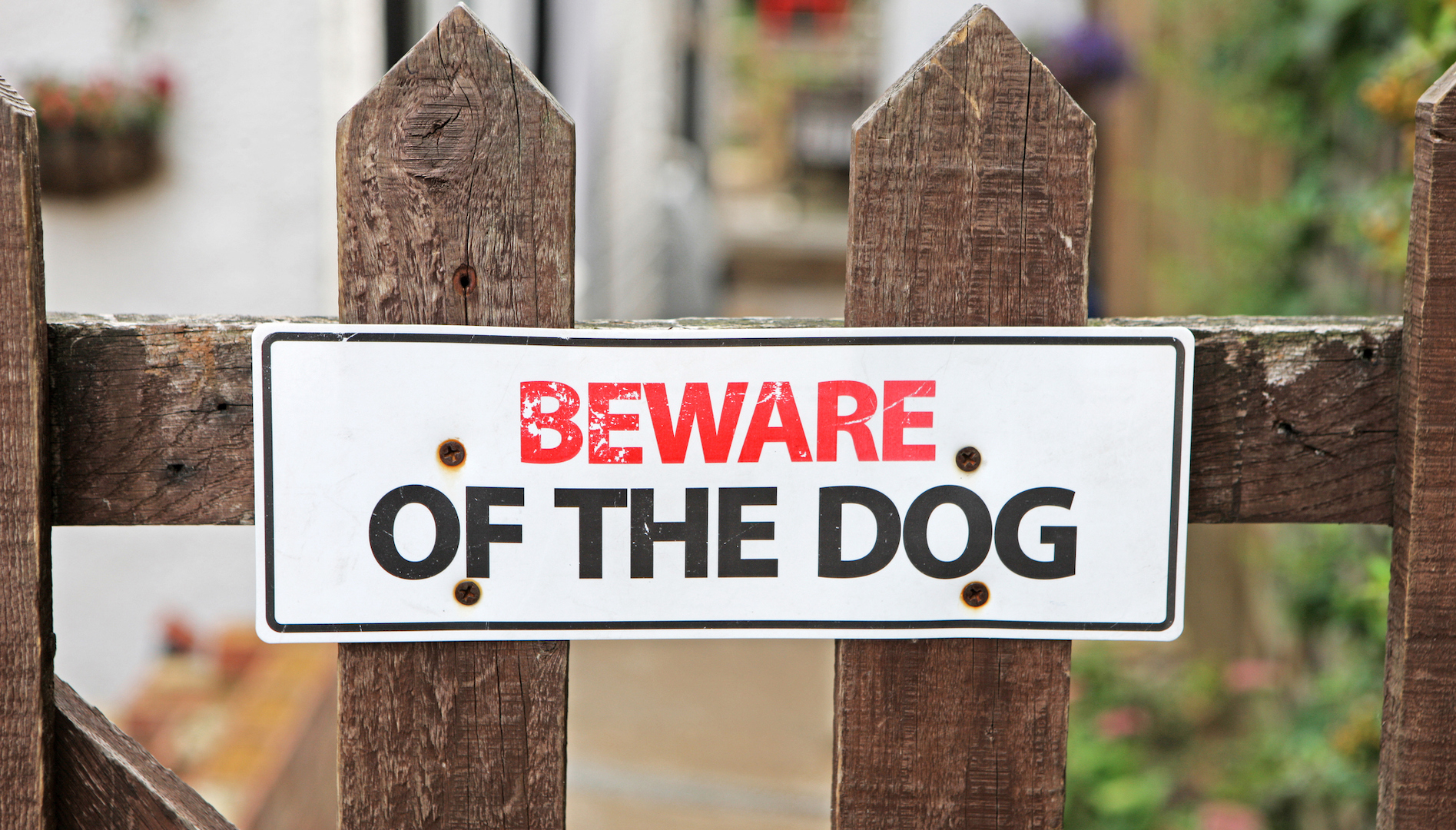
AWS tend to cherish their humans, so they are typically protective and wary of strangers. They also have a fair old bark on them, so can give you peace of mind if you want a dog that makes themselves heard. However, they were never developed as guard dogs per se (and they’re just a little bit too cute).
31. A long life
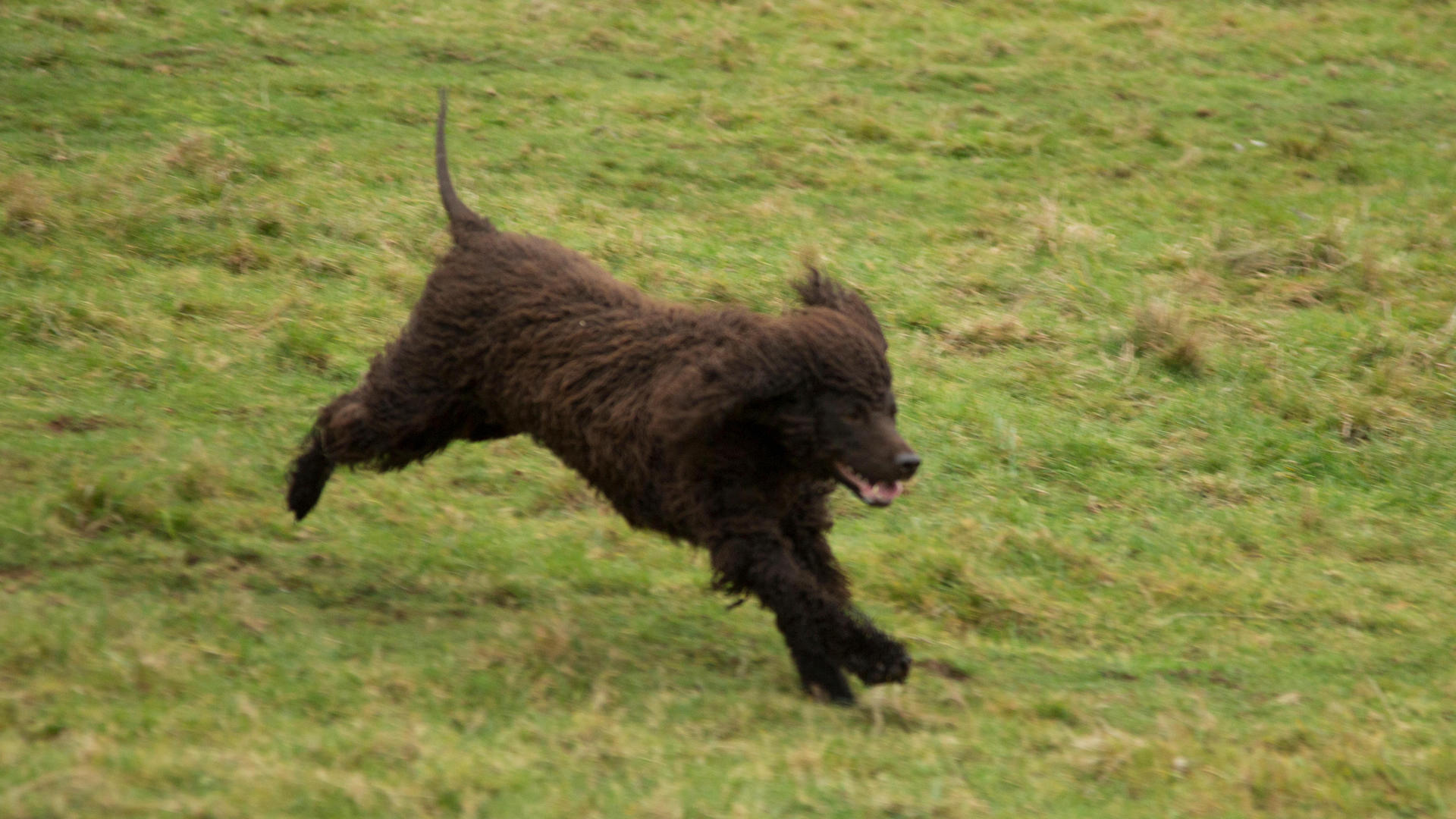
According to the American Kennel Club, AWSs live for an average of 10–14 years, although there are many examples of this breed living several years beyond this. With good care, a healthy and fit dog can hope to live well into his teens.
32. Adaptable
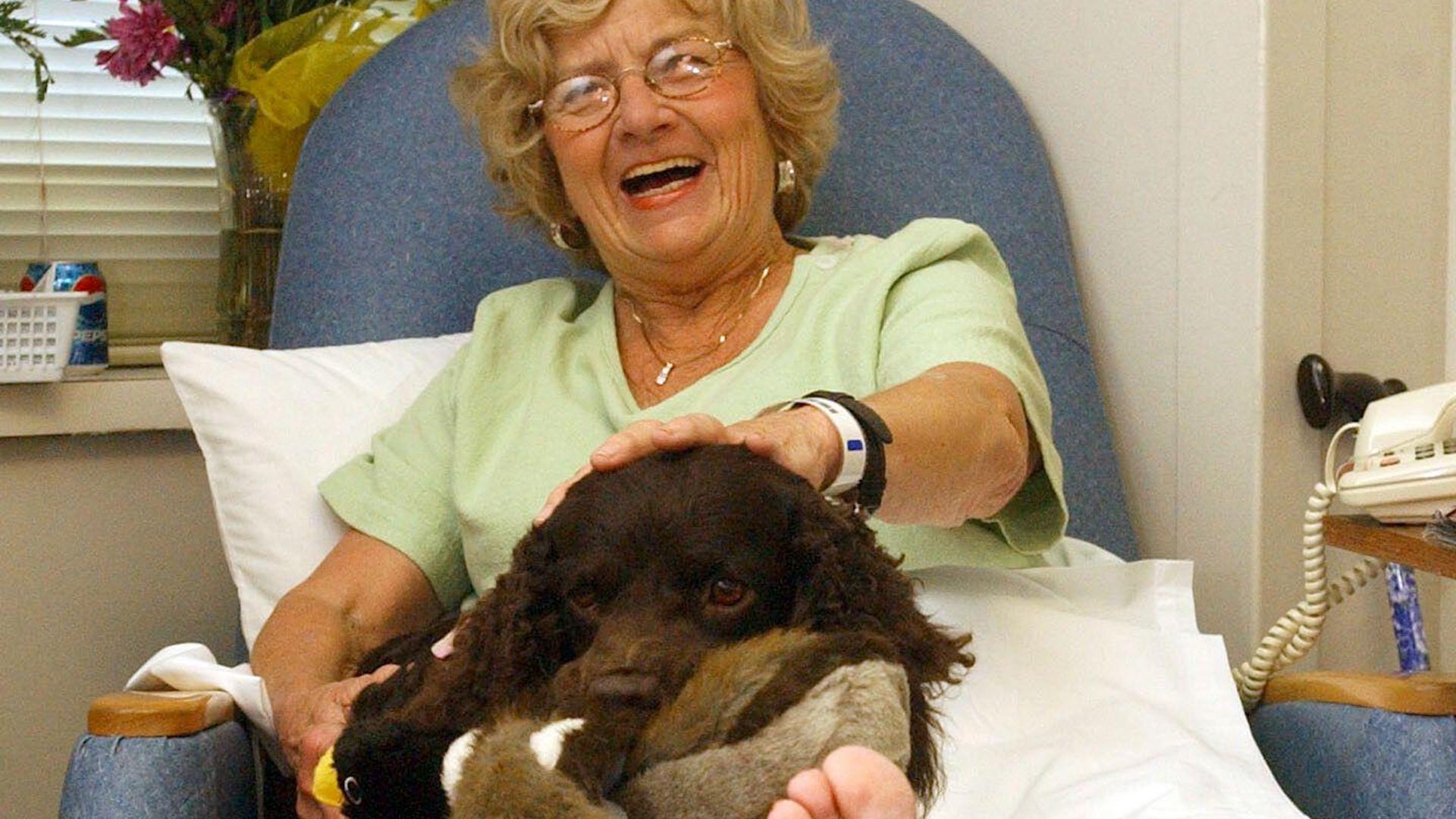
Bred both to retrieve and to flush game, this is one of the most versatile gundogs. They swim, hunt, they work all day, compete in myriad disciplines, work as therapy dogs or simply play in the home. They are wonderfully adaptable to a wide range of situations and environments – just so long as they have plenty of exercise and playtime with some of the best dog toys.
Enjoyed these facts? Here are our favorite interesting dog facts for you to enjoy!
Martha is an experienced journalist working in both print and digital media. She specializes in the canine, equine and rural sphere where she has covered a wide range of topics from cloning animals and the ingredients for a perfect yard dog, to helping owners find the best canine GPS trackers on the market. When she’s not busy writing about dogs and horses, she’ll be found either aboard a horse or looking after the menagerie of pets in her care.
